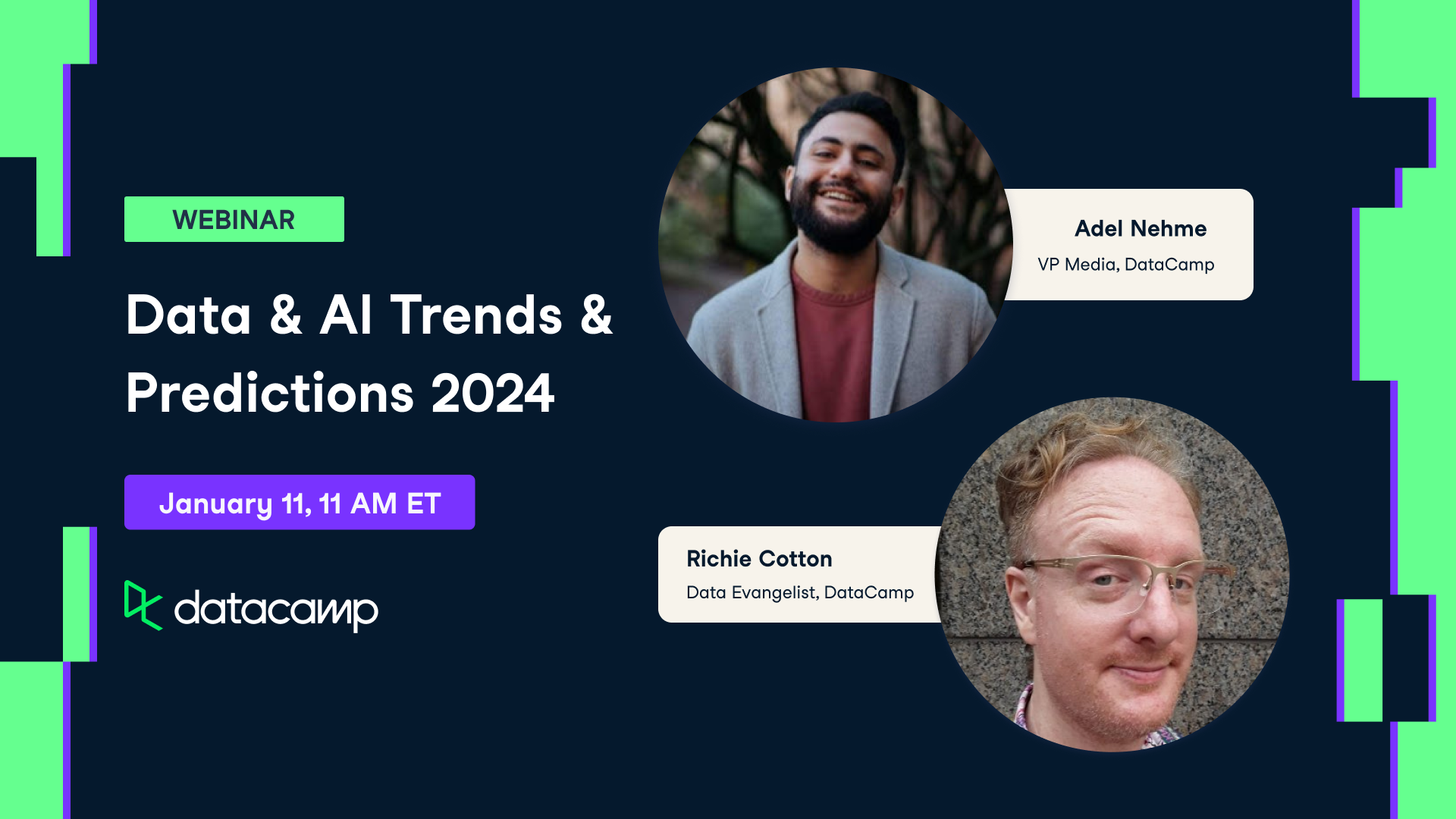Pular para o conteúdo principalSaiba Mais





Falantes
Treinar 2 ou mais pessoas?
Obtenha acesso à biblioteca completa do DataCamp, com relatórios, atribuições, projetos e muito mais centralizadosRelacionado
white paper
2022 Data Trends and Predictions
Read about 9 trends shaping data science in 2022 and beyondwebinar
Building Your Organization’s Data & AI Maturity
Adel Nehme, VP of Media at DataCamp, details the path to become a data & AI mature organization.webinar
The State of Data & AI Literacy in 2024
Join this webinar to learn how and which data & AI skills are becoming increasingly pervasive in organizations across industries, how leaders are adapting their teams and workforce to the era of data & AI literacy and more.webinar
DataCamp 2024 Q1 Roadmap
What’s next for DataCamp? Whether you’re investing in your data and AI skills or responsible for your organization’s professional development, join us for an overview of new features and content coming to DataCamp in the first quarter of 2024.webinar
DataCamp 2024 Q3 Roadmap
Whether you’re investing in your data and AI skills or responsible for your organization’s professional development, join us for an overview of new features and content coming to DataCamp in the third quarter of 2024.webinar
Expert Sessions: How to Break into AI in 2024
In this webinar, Sadie St. Lawrence, Chief AI Officer at SSL Innovations and Founder of Women in Data, will provide an in-depth exploration of best practices for breaking into AI in 2024.Join 5000+ companies and 80% of the Fortune 1000 who use DataCamp to upskill their teams.
Loved by thousands of companies


